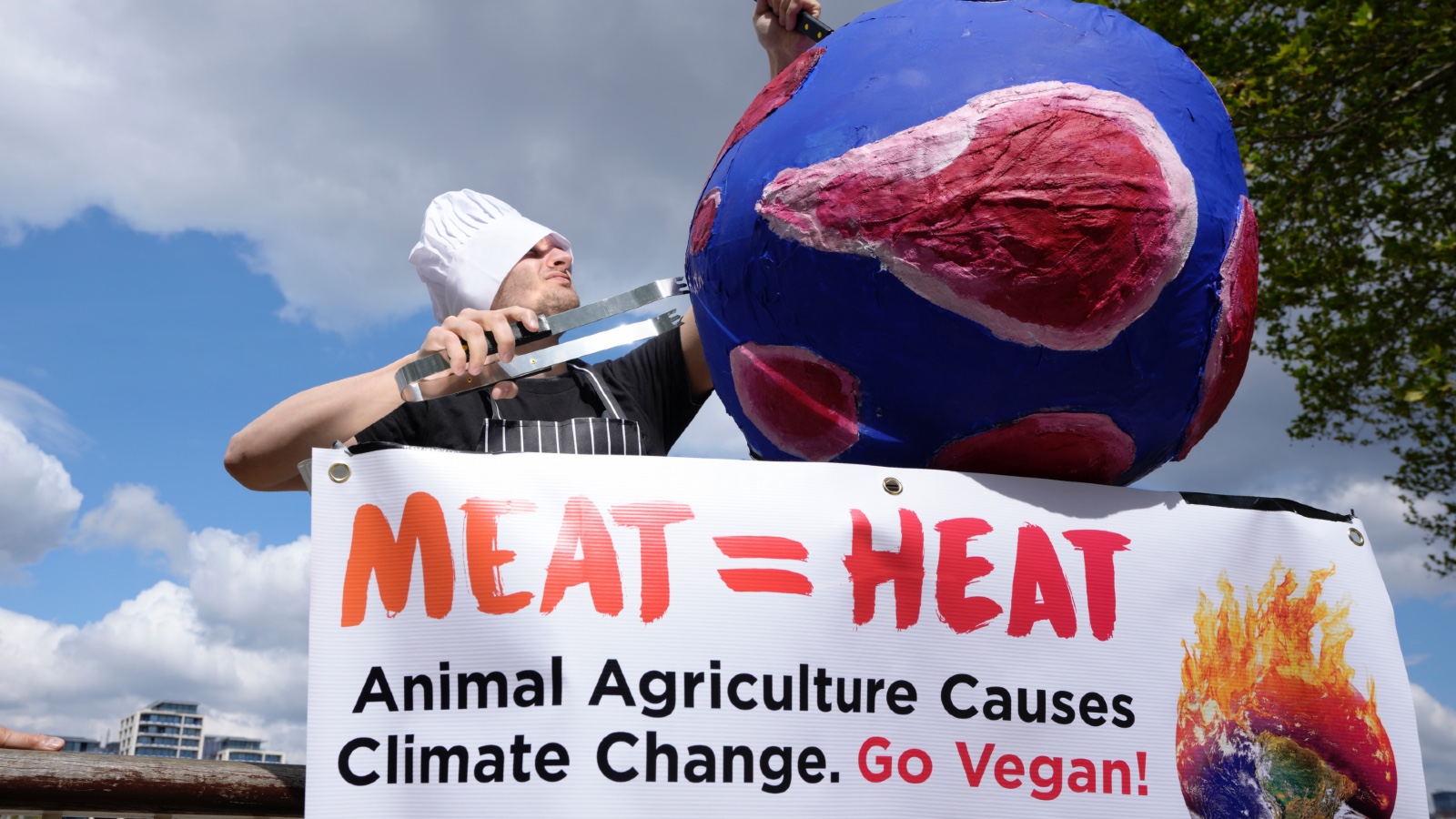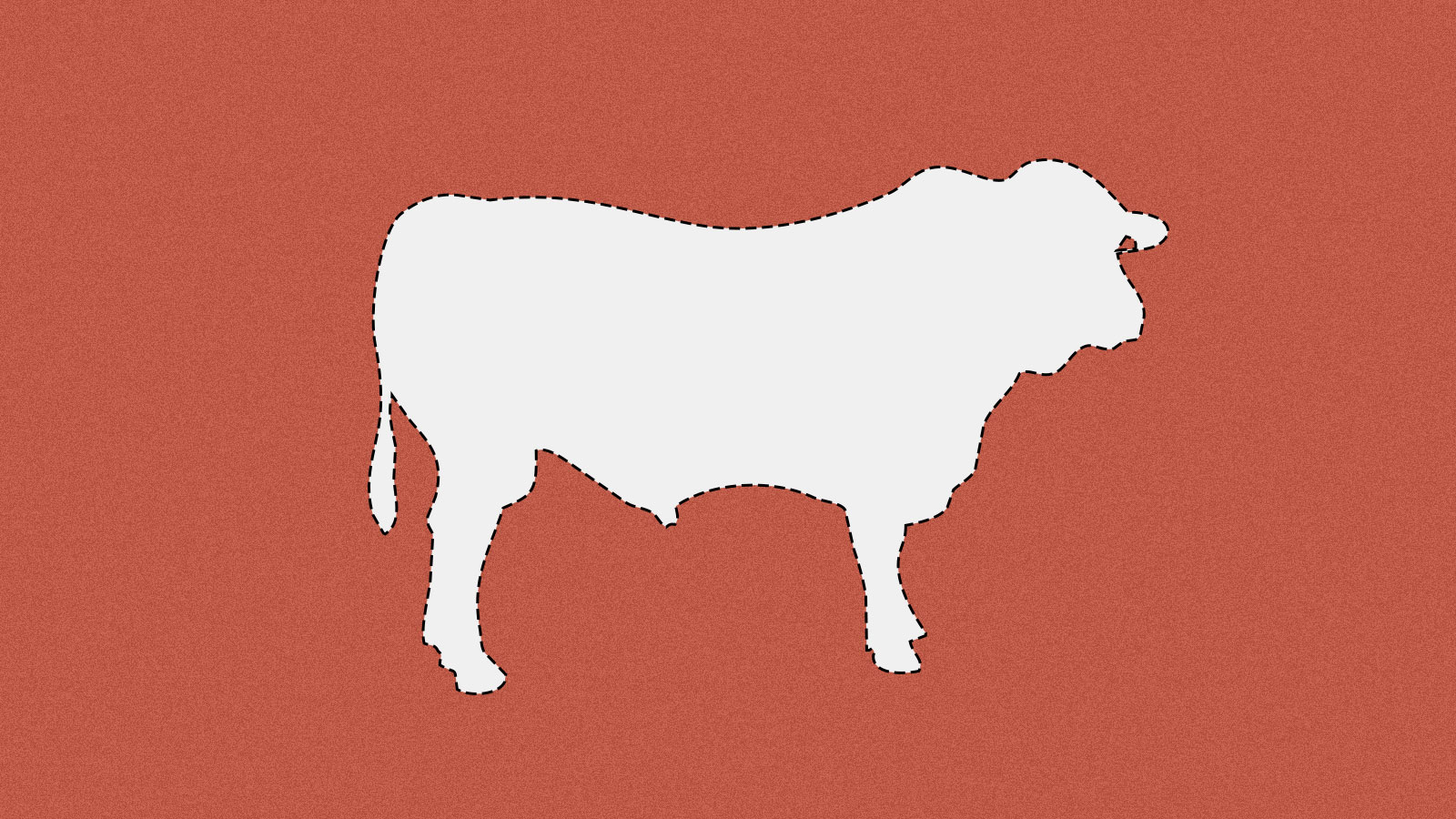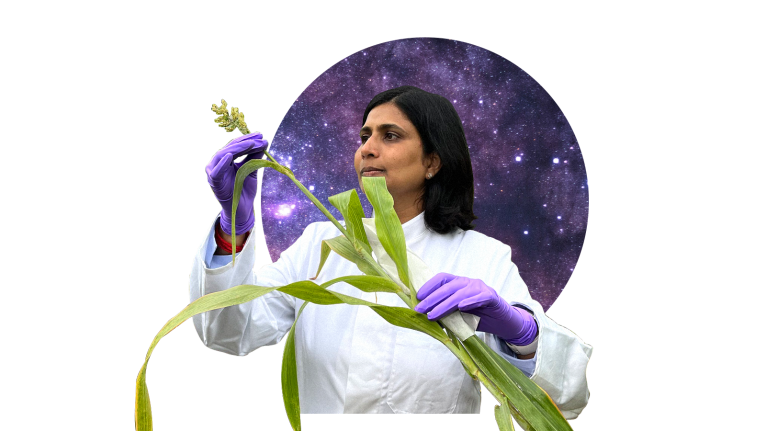Fossil fuels usually suck up everyone’s attention at the annual United Nations’ climate summit. But at this year’s gathering in Dubai, COP28, another topic is generating headlines: food.
More than 130 countries signed a declaration on Friday saying that the world must transform its food systems, the source of one-third of all greenhouse gas emissions, “to respond to the imperatives of climate change.” On Saturday at the conference, the Biden administration announced a national strategy to reduce food waste, a huge emitter of methane. And on December 10, the U.N. is expected to call on countries that consume a lot of meat to eat less of it.
All this news comes after years of prodding from scientists and environmental advocates who say the only path to keep global warming below the Paris Agreement’s goal of 1.5 degrees Celsius (2.7 degrees Fahrenheit) is to do things like limit how much meat we eat in the U.S. and other beef-loving countries. (Livestock alone are responsible for about 15 percent of global climate pollution.)
The problem is that meat consumption is as politically polarizing as ever. Fox Business recently ran a headline saying world leaders planned to “declare a war on meat” at COP28. “They don’t want solutions, they want a sick, depressed populace,” television chef Andrew Gruel said on the social media platform X.
The political right is also taking aim at climate-friendly alternatives to meat, like cultivated chicken and beef, made from cells grown in labs. State legislators in Florida recently proposed a bill that would make selling cultivated meat a second-degree misdemeanor. In Europe the issue has been just as partisan. Italy’s right-wing government just banned the production and sale of cultivated meat, ostensibly to protect the country’s culinary heritage. And Germany’s far-right Alternative for Deutschland party has been drumming up fears that the left is coming for their fried cutlets. “They will not take away my schnitzel,” a party co-chair said at a campaign event this fall.
Some of the backlash is likely a result of lobbying by the meat and dairy industries and the proliferation of misinformation on social media. But no matter how good it might be for the planet to end factory farming and to stop converting forests into pastures, researchers say meat is inherently political.
“It’s a political relationship between our species and other species,” said Sparsha Saha, a political scientist who studies meat politics at Harvard University. “That’s what makes it a lot different. It’s not a technology.”
Technological solutions tend to be more popular than lifestyle ones, even though some researchers say both may be necessary to avert environmental catastrophe. According to a survey across 23 countries, people in every one but France showed more support for solving the climate crisis through technology and innovation than by changing how they live.
Saha’s research suggests that meat is even more polarizing than gas-guzzling cars. In a recent study published in the journal Frontiers, she found that voters are more likely to oppose candidates who advocate for curbing emissions by eating less meat than those who talk about the need to limit emissions from transportation.
“It’s like asking us to be a different kind of human,” Saha said. “I think that’s why people are so reticent about it. It is kind of a costly thing to bring up. Even as an academic, I have to be really thoughtful about how I’m framing things.”
To Saha, the solution isn’t to keep meat out of political conversation; it’s to talk about it differently and focus on building consensus. Rather than avoid the issue or pretend like it doesn’t have to be political, she thinks the meat-reduction movement would benefit from messaging supported by a broader coalition, including religious leaders, hunters, and even ranchers who oppose factory farming.
“If we had put more thought into how it could be communicated well to people ahead of time we might not be in this position,” Saha said. “It feels like it was sprung on people.”
Saha advises against “quiet meat politics,” an idea articulated in a piece published in 2021 by the Breakthrough Institute, an environmental research center in Berkeley, California. The author of the article, a researcher named Alex Smith, argued for an approach that “avoids political partisanship and culture warring in favor of creating a technological and infrastructural environment that can achieve long-term sustainable change.”
Smith wrote that plant-based burgers, like those made by Impossible Foods and Beyond Meat, have a lot of potential to replace animal products, and he predicted that more people would shift their diets if those alternatives — as well as “more futuristic” lab-grown meat — got cheaper.
Today, Smith is less optimistic. He told Grist he’s “wary of the possibility” that plant-based meat will ever meaningfully displace poultry and beef, and he noted that “we’re still so far from actually knowing the scalability, the actual potential of cultivated meat.” In his view, efforts to lower greenhouse gas emissions from farming can’t only focus on replacing beef. They have to include improving animal agriculture, like developing feed additives that reduce methane. Smith pushed back against the idea that making meat more central in our politics would convince people to eat less of it.
“There’s pleasure involved. There’s culture involved,” Smith said. “I’m relatively skeptical of the idea that we can divert people and push them ideologically, culturally talking-wise towards anything other than that.”
Saha’s paper offers some evidence for a different perspective. To her surprise, she found that voters were more receptive to a theoretical candidate who talked about animal rights than one who talked about the environmental costs of meat eating. That might signal that meat itself isn’t as divisive as some think. Perhaps it’s made more partisan through its connection to another polarizing issue: climate change.




